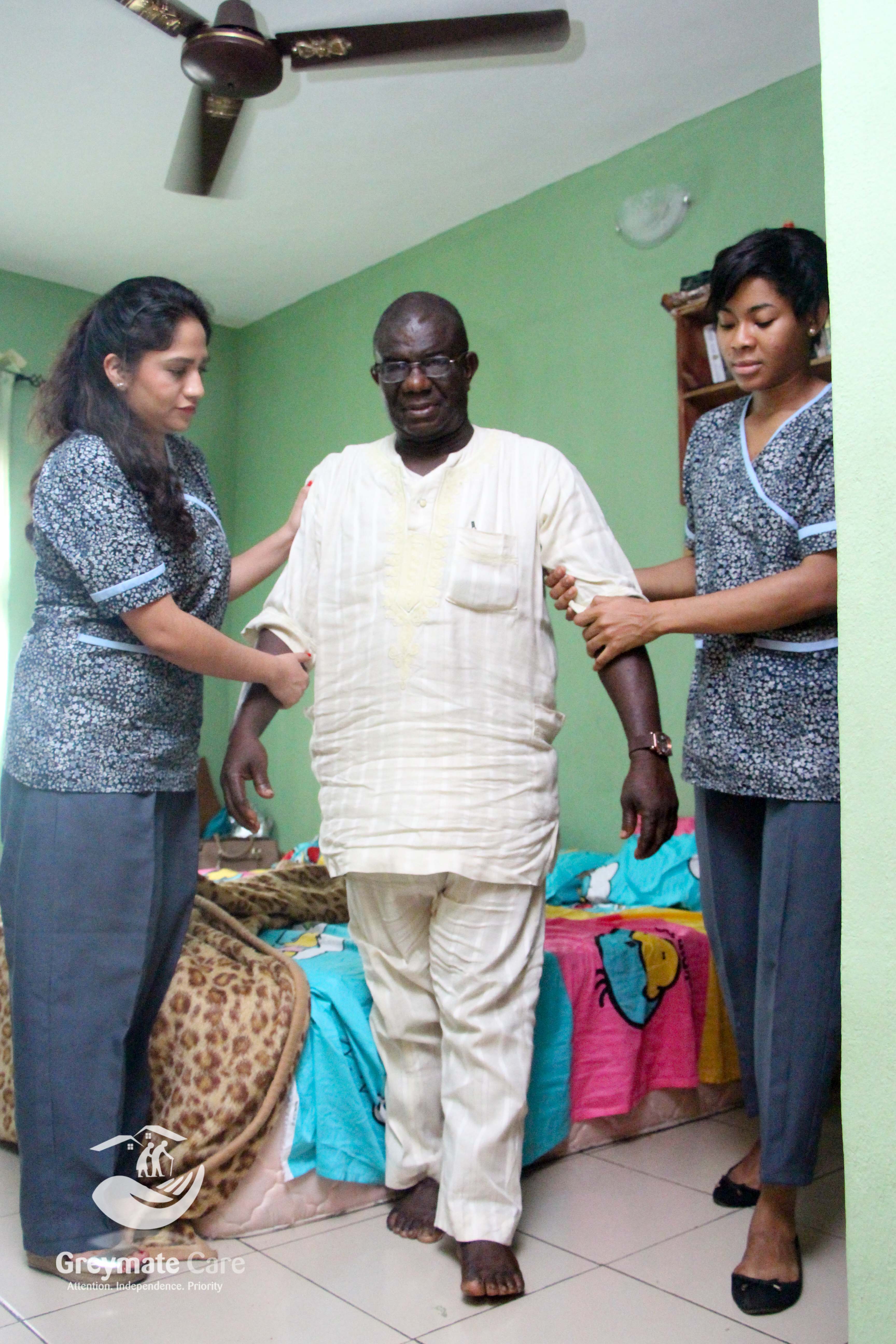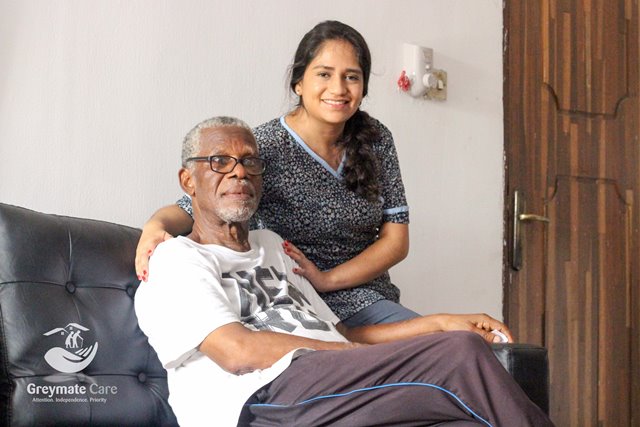
Two greymates trying to help an elderly
You finally took the time to study your loved one, he checked all the boxes on our checklist and you both came to the conclusion that a caregiver was required, and you took up the role. Here’s a round of applause for you. Not many have successfully taken this step like you did. You both refused to live n denial and have taken the bull by the horn.
You are on your A game as a caregiver, you know the details of his medication, spot mood changes easily, know what food to serve at every given time, and even his preferred bath water temperature. Despite all these, you start feeling some sort of resentment, tiredness, inadequacy like you are not doing enough, guilt, impatience. What you are about to experience is called a Caregiver’s burnout.
Caregiver’s burnout is a state of physical, emotional and mental exhaustion that may be accompanied by a change in attitude and is usually caused by unrelieved caring for a chronically ill dependent. Caregivers are often so busy caring for their loved ones that they neglect their own physical, spiritual, emotional and mental health and this finally results in a burnout.
Here are some tips to help you recognise, prevent and recover from a burnout.
Below are signs that show you may be having a Caregiver’s burnout;
Chronic fatigue
You suddenly notice that you feel tired all the time, this usually progresses to physical and emotional exhaustion and you begin to dread every dawn, and all the activities of caregiving suddenly begins to feel like a chore.
Insomnia
You may have trouble falling or staying asleep up to two nights a week, despite a strong sense of exhaustion, you still struggle to have a full night’s sleep.
Forgetfulness/Impaired concentration and attention
You lose focus easily and tend to forget where items are placed. You pile up duties and procrastinate before you get anything done.
Increased illness
You notice symptoms of flu, fever, dizziness and general malaise most of the time. This is because your immune system has become weakened and you have become more susceptible to immune-related medical problems.
Loss of appetite
You lose interest in foods you would normally love, skip meals and begin to notice a significant amount of weight loss.
Anxiety, Anger and Depression
You notice your mood swings become more pronounced and you become easily irritated by the dependent, less friendly and want to remain behind closed doors all the time.
If you answered positively to any two of the signs above, you may be suffering from a Caregiver’s burnout.
Caregiver’s burnout is normal and is frequent among family caregivers. Here are ways to recover from a burnout ;
Respite Care Services
Get someone else to replace you temporarily. You can be replaced within the family or get external help by calling a home care agency and requesting for a short time professional caregiver. This gives you time to unwind, reboot and reload before you resume your caregiving duties.
Set realistic goals
‘Don’t tight the world to your chest’. Do what you can and save the rest for later. Truth is you will never feel enough, always be in communication with your loved one on what he likes at every given moment, make sure he is always happy.
Treat yourself from time to time
You can ring up Coldstone for a quick ice cream or call for a home massage. These things help relax you and takes your mind off the stress of caregiving.
Seek professional help
Always keep in touch with a good home care agency. There are good home care agencies around Nigeria. You can call Greymate Home Care on 09090904226, or send an email to info@lavishcare.com.ng. We are on facebook, instagram and twitter as @greymatecare. We are Nigeria’s number one homecare agency and we take the stress of care off busy professionals so they have time for other life’s hassles.



Nice post.
Thanks. Follow us on instagram, twitter and facebook on @greymatecare for more tips.